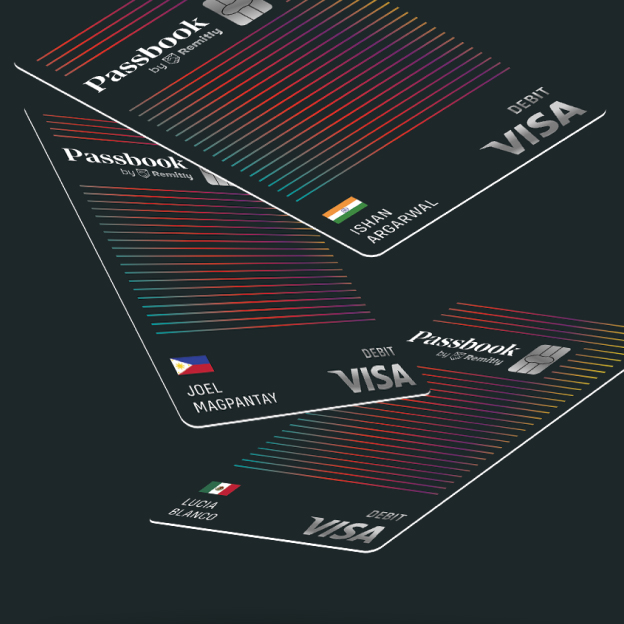28 : 02 : 20 : Weekly Debrief
This week: London’s accessible members’ club, banking the unbanked, mouldy marketing from Burger King, Burberry kicks off carbon insetting and waterless beauty.
1. Birch is a rurban Millennial playground
UK – Birch (HANDLE.SILK.COMET.) is a retreat, un-members’ club and co-working space located 30 minutes north of London.
Envisaged as a hybrid destination combining a hotel, workspace, wellness retreat and a creative hub, Birch is positioning itself as a playful yet inclusive destination where visitors can escape from modern urban life. Opening in April 2020, it will offer guests a host of services, including a massage parlour, a variety of eating and drinking spaces, and mindful activities such as pottery classes, baking and outdoor foraging.
It's also family-friendly, giving parents the option to bring children – who can be entertained at its on-site crèche – while they enjoy its hospitality and services. Unlike members' clubs that require specific applicant requirements, Birch considers itself to be ‘free from the judgements, expectations and constraints of daily life.’ Instead, the space hopes to be more accessible, with a monthly membership fee from £100 ($129, €119).
Through its multi-faceted approach to relaxation, socialising and learning, Birch represents a new generation of club catering for the tenets of the Pleasure Revolution. For more on what this will mean for your brand, join us for Trend Briefing 2020 on 25 March in London.
 Passbook by Remitly
Passbook by Remitly
2. Passbook salutes the identity of unbanked people
US – Passbook is a new bank that not only enables immigrants to manage their finances more easily, it also celebrates their heritage.
Launched by money-transfer start-up Remitly, Passbook is designed to remedy the issues faced by people who do not have an American social security number or other form of US-originated identification. Instead, it empowers them to use a range of picture IDs, such as a passport from their home nation. In turn, customers opening an account receive a bank card with their national flag positioned above their name in homage to their identity.
In this way, Passbook is working to assist the 1.7bn people globally who remain unbanked and off the financial grid (source: World Bank). As Remitly CEO and co-founder Matt Oppenheimer notes: ‘Passbook is the next step in Remitly’s mission to transform the lives of the millions of immigrants around the world who make the huge sacrifice of leaving their families behind to live and work in another country.’
Amid the rise of high-level mobile adoption, growth in e-payments, biometric identification and currency digitisation, companies like Remitly are playing a positive role in Banking the Unbanked.
3. Realness reigns with Burger King’s mouldy Whopper
US – Burger King has launched a shock-factor campaign to shine a light on the removal of artificial preservatives in its products.
Presented as a time-lapse video that documents the deterioration of a Whopper burger over 34 days, the campaign shows the burger gradually changing from its freshly made state to an unappealing serving covered with mould. The campaign is born from the brand's continued focus on rolling out its popular Whopper sandwich without preservatives, colours or flavours from artificial sources.
With the additive-free Whopper available in more than 400 restaurants across the US, the brand hopes to amplify the authenticity of its food through this audacious communication strategy, rounding off the campaign with the tag line: ‘The beauty of no artificial preservatives’. Fernando Machado, global chief marketing officer, says: ‘At Burger King restaurants, we believe that real food tastes better. That’s why we are working hard to remove preservatives, colours and flavours from artificial sources from the food we serve in all countries around the world.’
By drawing attention to the uglier side of its products, Burger King is one of many Backlash Brands which are choosing to stand their ground on issues they care about, rather than bowing to consumers’ expectations.
4. Burberry brings carbon insetting to London Fashion Week
Global – Luxury label Burberry is firing up its carbon-neutral ambitions by turning its attention to London Fashion Week.
For its recent autumn/winter 2020 runway show, Burberry took a range of measures including showing at a carbon-neutral venue, using electric vehicles for transport and avoiding air freight before the show.
It also chose to plant trees in Australia – a nation whose eco-system has been hit heavily by recent bush fires. Pam Batty, the brand’s vice-president of corporate responsibility, says: ‘We are passionate about creating real change in our industry to build a more sustainable future and I am proud that we can express this through our biggest brand moments like our runway shows.’
The efforts are part of a series of cross-brand initiatives in a bid to become carbon-neutral, which include reforestation programmes, and working to promote biodiversity and regenerative agriculture practices.
For more on how brands must evolve in the 2020s in order to be part of consumers’ ever-more conscious lifestyles, book tickets to Trend Briefing 2020, where we’ll reveal the future of Post-purpose Brands.
 Burberry
Burberry
5. Forgo is a mix-it-yourself cosmetics solution
Stockholm – Design studio Form Us With Love has launched Forgo, a sustainable, subscription-based personal care service that produces significantly less waste than most brands in the toiletries sector.
The brand’s eco-first initiative initially led to a subtraction of ingredients – with the removal of 80–90% of the water that exists in most cosmetic products. After developing a powdered solution to which consumers add their own water, Forgo's developers turned their attention to plastic, throwaway bottle. Now, its three concentrated powders are sold in water-soluble paper.
Created to provide an overall more eco-friendly at-home cleaning option, Forgo has created a starter pack including a re-usable frosted glass bottle. Also recognising the importance of convenience for shoppers, the service operates on a subscription delivery model, with sachets that fit through letterboxes reducing the size and weigh of the product.
Brands are increasingly aware of the need to reduce the amount of water used in cosmetics manufacturing – something we examine in Waterless Beauty – developing formulas to alleviate environmental concerns.
To future-proof your world, visit The Future Laboratory's forecasting platform LS:N Global for daily news, opinions, trends, sector specific insights, and strategic toolkits.
Want to read more?
Become a member today!
Sign up to one of our subscribtion packages and get unlimited access to a hive of insights - from microtrends and macro trends to market reports, daily news, research across eight industry sectors and much more.
Discover our memberships
Already a member? Click here to login
